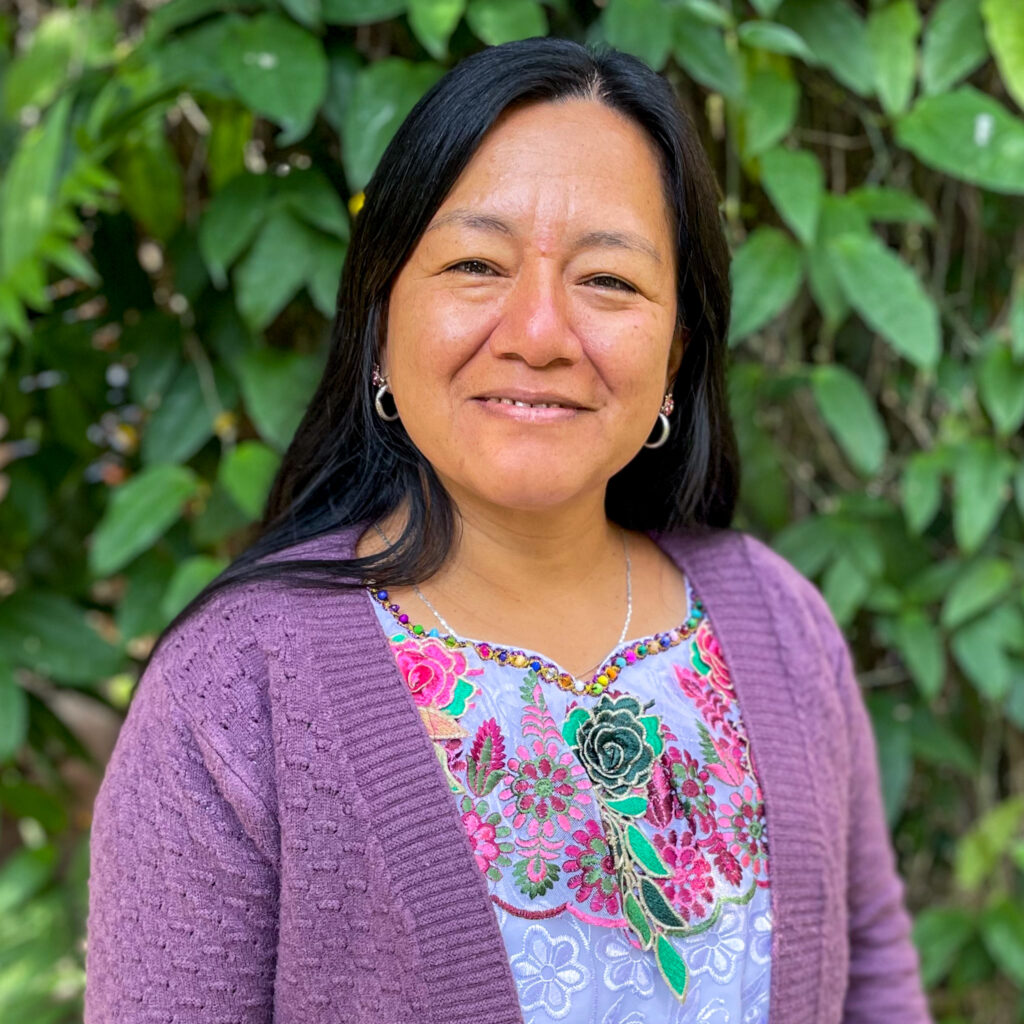
Rodia Sisimit
Teacher (2021 Fellow)
Project: Preserving Language – A Physical and Digital Library in Kaqchikel
Quote: “We all have an identity, and our language and culture influence us in our identity”
Favorite Book: The Bible
Favorite Activity: Playing basketball
About: At a young age, Rodia realized that a career in education would allow her to be actively involved in her community and aid in its development. Rodia has a Bachelor’s Degree in Education and a Master’s Degree in Intercultural Bilingual Education which is instrumental in effectively teaching both indigenous Maya and mestizo youth. Rodia finds it fulfilling to guide children in their development and growth and for over 20 years, has taught primary through university-level students in urban and rural settings, and in public and private schools. In addition to being an educator, Rodia supports her family’s flower business.
Rodia believes education is necessary for everyone to reach their potential and fulfill their purpose in life. Given the importance of education, she recognizes that it’s time for the education system to be transformed, and to do so, all stakeholders need to be involved. Rodia is grateful for the space she has been given through ConnectED to assess her community’s needs and for the ability to develop and implement a project that aligns with those needs. She is dedicated to encouraging the community to utilize the Kaqchikel language and to share their love for their culture with younger generations.
“I believe that change is possible! Everyone deserves a better world and a better society and quality of life, and we can all be a part of the change”
Problem: The indigenous Kaqchikel language is not widely spoken and is being lost by younger generations. Many parents in Rodia’s community, and in surrounding communities, oppose the teaching of Kaqchikel, as they claim it is not necessary or that their children already know the language. However, Rodia has observed that the parents themselves do not speak the language fluently and that Kaqchikel is not being passed down to future generations.
Solution: Rodia incorporated Kaqchikel into classrooms and created a library of resources and books. Teachers now have access to resources in Kaqchikel and are trained in how to use them. Through modern teaching methodologies, students are developing cognitive, communication, and literacy skills in Kaqchikel. Additionally, students and families have access to a physical and digital library of books in Kaqchikel.
Last year, Rodia’s students put on a school concert, singing songs in Kaqchikel. You can watch the videos here! https://youtu.be/fmEG23EI7VI / https://youtu.be/BT6jaZm4TaA
